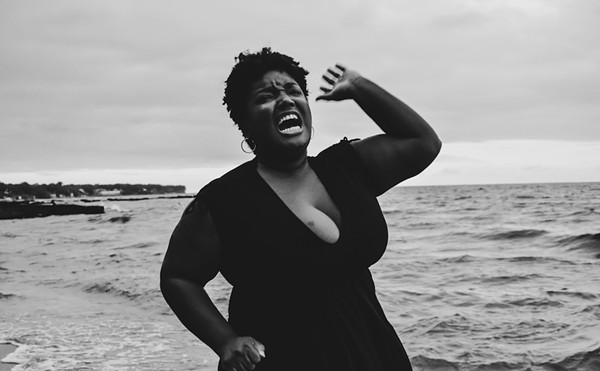What's remarkable, too, is that the kinder, gentler Adam Sandler that was first on display in The Wedding Singer, and appears in full blossom here in Big Daddy, isn't a "softer" Adam Sandler. None of his sharp edges have been blunted, none of his raucous outrageousness domesticated.
The picture begins in New York City at the downtown apartment that Sandler, in the role of Sonny Koufax, part-time toll-booth operator and full-time layabout, shares with his lawyer roommate Kevin (Jon Stewart). Like Kevin, Sonny has also graduated law school, but at this point in his life can't bring himself to begin his practice. Instead, he continues to live as he did in law school, funding his pre-adult indulgence with the settlement awarded by the court when a car ran over his foot.
By now, though, Sonny's girlfriend, Vanessa (Kristy Swanson), is tired of playing law school and issues Sonny an ultimatum: Either Sonny demonstrates his desire to, as she puts it, "move on to the next stage," or she walks.
It's a tough choice, but no sooner have the words left her mouth than a possible solution presents itself. It comes in the form of an adorable five-year-old boy named Julian (played by the twins Cole and Dylan Sprouse), who shows up on Sonny's doorstep with no introduction except a note from his mom. As it turns out, Kevin is Julian's real father, but since Kevin has just left home for an extended business trip in China, the responsibility for Julian's daily needs falls to Sonny. At first, Sonny sees Julian's arrival as a godsend. But when Vanessa fails to share in his excitement over their instant family status and ends their relationship, his mood rapidly cycles to despair.
Up to this point, Sandler and his co-writers, Steve Franks and Tim Herlihy, score most of their laughs routinely off of pee-pee and vomit jokes. But after a fight with his own dad (Joe Bologna), Sonny's child-rearing technique gets a radical overhaul, and the comedy becomes smarter and multilayered. Convinced that the "father knows best" approach is a proven loser, Sonny decides to let the kid make most of the important life choices for himself. For example: his name, Julian. He probably had nothing to do with that, and so he picks a name of his own: Frankenstein. Also, Julian . . . ah, Frankenstein's clothing choices are his own, which makes for some pretty hilarious outfits, including one in which a colander serves as a hat.
Overall, Sandler's interactions with the boy give him a chance to demonstrate his oddball take on life, but it's not until Sonny begins to build a relationship with Layla (Joey Lauren Adams) that we become aware of just how unique a breed of cat he is.
It is in his scenes with Adams—who, with her squeaky-toy voice and radiant ear-to-ear smile, turns out to be a pretty irresistible package herself—that Sandler lets us in on what makes Sonny tick. (It was the same with Drew Barrymore in The Wedding Singer.) And not only is he more relaxed and confident—and, therefore, more appealing—in these scenes, but he also comes across as someone with a definite set of values. Maybe he doesn't think things through as much as he should, but he is also not some jerk who just drifts through life without a clue. He may have postponed some of the tougher choices in his life, but when the time comes for decisiveness, he has the character to pull his life together to get what he wants.
The first real challenge in Sonny's life comes when the state reclaims Julian, and Sonny has to go to court in order to get him back. It is precisely this sort of sequence that audiences don't expect to see—or expect to see done well—in an Adam Sandler film. But not only is the sequence done well—director Dennis Dugan's staging is particularly good here—there is one scene between Sonny and his father that also manages to be genuinely moving. During moments such as these, Sandler demonstrates that a soft heart—something he shares with almost all the great film comedians—doesn't necessarily go hand-in-hand with a soft head. And, furthermore, that emotion and depth of feeling need not be enemies of comedy.
Of course, no one wants Adam Sandler to stop making "dumb" movies. It's when he's dumb that he's most brilliant. What Sandler and his collaborators have created in Big Daddy may sound like a contradiction, but it isn't; it's a hilarious, dumb comedy that's smart enough to be something more. And all it does is make him the most soulful—and the funniest—comic in the business.









